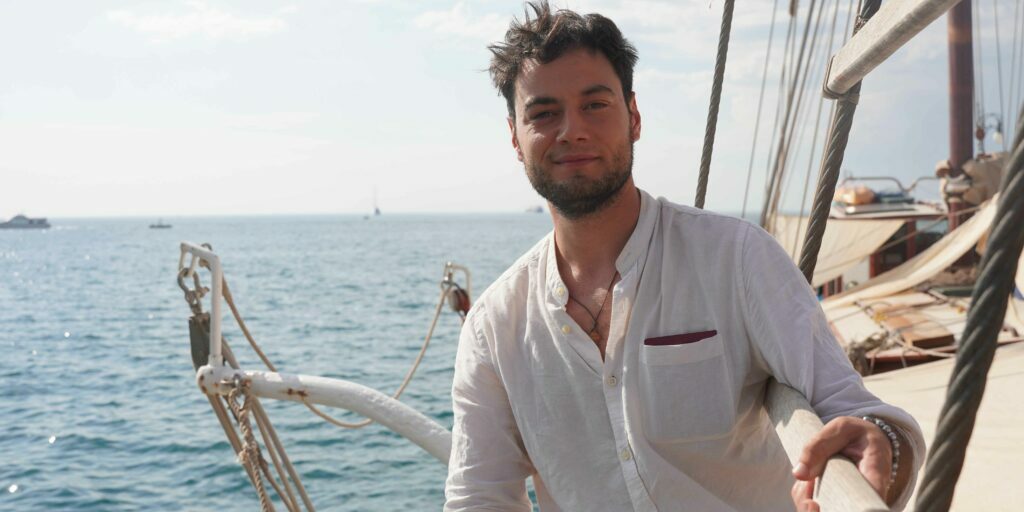Francesc, Spain

“Our days on the boat led me to question not only my personal journey but also the broader question of the meaning of life itself. Sometimes it feels as though everything is arbitrary: we are born in one place, not another; to one family, with one story, among countless possible ones. Philosophers speak of absurdism, that tension between our human need for meaning and a universe that does not give us easy answers. Yet in that very tension, I find a surprising beauty. Perhaps life is not about finding one fixed purpose, but about creating one together, moment by moment.
Here, faith plays a role. Religion does not erase the absurd or the arbitrary; instead, it offers a horizon, a direction towards which we can walk even when the ground beneath us feels uncertain. Believing that there is more than chance, that our lives are inscribed in a larger story, allows us to embrace fragility with courage. It does not solve all questions, but it transforms them into an invitation: to live with love, to build with others, to trust that nothing is meaningless if it is given with sincerity.
This reflection connects to the question of nations and borders that we discussed. More and more, I feel that the system of states as we know it is outdated. The borders of 2025 no longer make sense when they divide people who should be united. I think, for example, of my brothers and sisters in Algeria or Egypt, with whom we share centuries of history, culture and exchange. Why should I feel distant from them, while at the same time being told I am naturally closer to someone from Latvia or Germany simply because we both belong to the European Union or the same “land continent”? Of course, I value the European project and the bonds it has created, but I cannot ignore that it also reveals the contradictions of belonging: integration on one side, separation on the other.
This paradox shows me that our lines are human inventions, not eternal truths. Nature ignores them. Biomes such as seas, forests and deserts flow across borders without asking for permission. We should not be prisoners of outdated lines on a map; instead, we should dare to redraw them, or better, to look beyond them.
Migration brings this truth into focus. Our world speaks constantly of flows of people, as if they were a threat or a problem. Yet migration is the most human of actions: the search for dignity, for safety, for a future. It is as old as humanity itself. What struck me on the boat was how migration is often portrayed as chaos, when in fact it reveals the deepest order of human existence: that we are all travelers, always in movement, always seeking a home.
At the same time, the suffering of migrants confronts us with our own contradictions. We celebrate freedom of movement for tourists or goods, but criminalize it for those who move out of necessity. We claim to build a Europe of rights and values, yet we allow the sea, the very sea we sailed peacefully on, to become a graveyard for thousands. This hurts me deeply, because it shows how fragile our sense of justice can be when faced with fear and difference.
And yet, I also saw how migration can be a place of encounter. On the boat, in our discussions, I sensed a longing for a future where borders are not walls but bridges, where those who arrive are not treated as strangers but as neighbors. Migration, if embraced with humanity, has the power to renew our societies, to remind us that identity is not about exclusion but about openness. It challenges us to recognize that we all belong to the same story, carried by the same sea.
To conclude, what touched me most during this time was the sincerity of our exchanges and the courage to ask uncomfortable questions together. What hurt me at times was realizing how far our world still is from living out these ideals, how much fear and division remain. What has changed for me is a clearer sense of responsibility: that I cannot remain passive in front of injustice, but must carry these reflections into my work and my daily life. What gives me hope is the very community we built during those days, fragile, diverse, imperfect, yet deeply human. If such a community is possible on a small boat, then it is also possible on a larger scale, for humanity as a whole. »
Francesc
Published on September 23, 2025 in S6 Testimonials